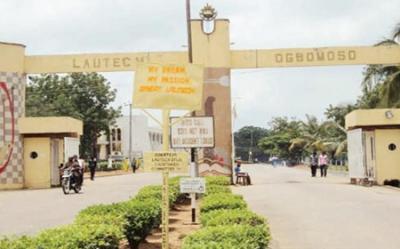Wike’s Light-Up Abuja Project: A step towards transforming the capital

Abuja, Nigeria’s Federal Capital Territory (FCT), has long grappled with unreliable electricity supply and poor infrastructure, particularly in street lighting.
Residents have endured frequent power outages and dimly lit streets, creating safety risks and hindering night-time economic activities.
However, this is set to change with the launch of the ambitious “Light-Up Abuja” project spearheaded by the current FCT Minister, Nyesom Wike.
Appointed by President Bola Tinubu in 2023, Wike has made illuminating Abuja a cornerstone of his infrastructure agenda. His administration is focused on ensuring that every part of the city is well-lit, improving safety, enhancing aesthetics, and promoting a vibrant night-time economy.
The Challenge of Abuja’s Street Lighting Infrastructure
Despite being the capital of Africa’s largest economy, Abuja has long struggled with ineffective street lighting. According to the World Bank, electricity access in Nigeria is just over 55%, with significant disparities between urban and rural areas. Even in Abuja, districts like Garki, Jabi, and Asokoro have been left in darkness due to non-functional street lights.
READ ALSO: 37 Lagos LCDAs: Opadokun tasks Tinubu on…
Successive FCT administrations allocated substantial funds to resolve this, but progress was minimal. In the late 1990s and early 2000s, under President Olusegun Obasanjo, Abuja’s streets were brightly lit. However, since then, neglect, mismanagement, and infrastructure vandalism have caused a decline.
Recently, Felix Obuah, the Coordinator of the Abuja Metropolitan Management Council (AMMC), highlighted the issue, blaming maintenance contractors for failing to address the problem. Major streets like Muhammadu Buhari Way, Aminu Kano Crescent, and the Airport Road remained dark, frustrating residents and businesses.
Wike’s Action Plan
Wike’s response to this long-standing issue has been swift and strategic. His administration has tackled the underlying problems, holding contractors accountable and increasing security to protect streetlight infrastructure from vandalism. In January 2024, he instructed security agencies to take action against those damaging the city’s street lights.
In May 2024, the administration launched the first phase of the “Light-Up Abuja” project, starting with the Airport Road, a key entryway into the city. The project introduced Smart Light Emitting Diode (LED) lights, known for their energy efficiency and longevity. This upgrade has already transformed the Airport Road and offers a preview of what the rest of Abuja could look like.
Wike’s vision goes beyond lighting alone. The aim is to improve security, reduce traffic accidents, and stimulate economic activity—especially at night. A well-lit city can extend business hours, attract tourism, and reduce crime, all contributing to Wike’s broader urban renewal efforts.
Strategic Partnerships with China
In September 2024, Wike visited Beijing, where he signed a significant agreement with the China Civil Engineering Construction Corporation (CCECC) and China Geo-Engineering Corporation Overseas Construction (CGCOC). These deals, signed during the 2024 Forum on China-Africa Cooperation (FOCAC), will enhance electricity distribution and water supply in key districts like Maitama, Wuse, and Garki.
“We want Abuja to be like other cities, like what we see in Beijing,” Wike said, highlighting the influence of the Chinese capital’s efficient street lighting. His goal is to replicate this in Abuja, creating a city that stays illuminated around the clock.
Focus on Sustainability and Smart Technology
A key aspect of the “Light-Up Abuja” project is sustainability. By using Smart LED technology, Wike’s administration is reducing energy consumption while increasing the reliability of street lights. LEDs have a longer lifespan, which lowers the need for constant maintenance and replacement, cutting costs in the long run.
Smart technology also allows for more efficient management of the lighting system. Sensors can control when the lights turn on or off, adjusting to real-time conditions, which not only saves energy but also reduces the city’s overall environmental footprint.
Economic and Social Impact
Beyond aesthetics, lighting up Abuja can bring significant socio-economic benefits. A well-lit city is safer, as streetlights help deter crime. Improved visibility at night also reduces traffic accidents, particularly in areas where non-functioning traffic lights have contributed to collisions and traffic jams.
The “Light-Up Abuja” project is expected to boost the city’s night-time economy. With increased safety, businesses can stay open longer, and residents will feel more comfortable going out at night. This could lead to a surge in nightlife, tourism, and overall economic activity, creating new job opportunities, particularly for young people in the growing service sector.
Looking Ahead
Wike’s “Light-Up Abuja” project is a significant step toward transforming the capital into a world-class city. While challenges remain—such as securing funding and maintaining the infrastructure—the early successes of the Airport Road project and the partnerships with Chinese companies show that the minister is committed to long-term, sustainable change.
Residents are hopeful that this initiative will not only light up the streets but also drive broader infrastructural and economic growth. If executed properly, Wike’s project could fulfill a promise that previous administrations failed to deliver, making Abuja a safer, more dynamic, and prosperous city.








